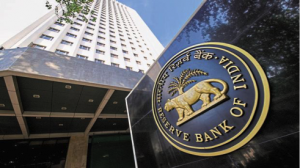In this blog post, Amit Halder, a Fourth-Year BA LLB student from Calcutta University and pursuing a Diploma in Entrepreneurship Administration and Business Laws from NUJS, Kolkata, discusses RBI regulations in External Commercial Borrowing.
A company, in order to run their business, needs huge capital resources. It is not possible for a company to run with limited resources whether it being capital or human power or technology. The companies are not restricted to accumulate capital from domestic markets in any of the prescribed manner, but they are allowed to gather capital from foreign markets as well. Increased globalisation and investor appetite for diversification offer a unique opportunity to companies looking to tap a new investor base, awareness or increase capital. Indian companies are allowed to raise capital in the international market through the issue of FCEB/FCCB/ECB/IFD. The government of India and the RBI with various bodies constituted in this respect Act forward for the correct implementation of the investments. The Foreign Exchange Regulation Act 1973, which was enacted to consolidate and modify the law in several respects encompassing the experience gained over few decades of implementation of the previous enactment of 1947, outlived its purpose in the light of the liberalisation policies introduced in 1991. The FERA since then had been reviewed, and amendments were made as part of the ongoing procedure of economic liberalisation relating to foreign investment and foreign trade for closer interaction with the world economy.
The government of India and the RBI with various bodies constituted in this respect Act forward for the correct implementation of the investments. The Foreign Exchange Regulation Act 1973, which was enacted to consolidate and modify the law in several respects encompassing the experience gained over few decades of implementation of the previous enactment of 1947, outlived its purpose in the light of the liberalisation policies introduced in 1991. The FERA since then had been reviewed, and amendments were made as part of the ongoing procedure of economic liberalisation relating to foreign investment and foreign trade for closer interaction with the world economy.
Foreign Loans in India
In India, the companies are given the opportunity to access foreign money as loan referred to as External Commercial Borrowing (ECB). The borrowers must be a resident of India and the Company in whose respect the money is borrowed must be registered in India and the lender must be a non-resident of India lending with a minimum average maturity of 3 years.
 The commercial loans are in the form of bank loans, buyers credit, suppliers credit, securitized instrument (floating rate notes and fixed rate bonds, non-convertible, optionally convertible or partially convertible preference shares). There are mainly two routes for accessing ECBs. Namely –
The commercial loans are in the form of bank loans, buyers credit, suppliers credit, securitized instrument (floating rate notes and fixed rate bonds, non-convertible, optionally convertible or partially convertible preference shares). There are mainly two routes for accessing ECBs. Namely –
- Automatic route
- Approval route
Automatic Route
The ECBs which are permitted through Automatic route may enter into loan agreement complying with the ECB guidelines with a recognised lender in a hassle free procedure. They do not require any prior approval of the RBI or the Government before making drawings, but they only need to obtain a Loan Registration Number (LRN) from the RBI prior to any drawings.
Some of the eligible borrowers permitted through Automatic route are:
- Units of Special Economic Zones (SEZ) are allowed to raise ECB for their own purposes.

- Micro Finance Institutions (MFIs).
- Non-Government Organisations (NGOs).
- Small Industries Development Banks of India (SIDBI).
- Hotels, hospitals and software sectors
Some of the permitted lenders through Automatic route are:
- Companies registered under Section 8 of the Companies Act, 2013.
- The NGOs engaged in micro finance.
- International banks, multilateral financial institution.
Approval Route
An amount of USD 500 million can be repaid by AD banks without any prior approval of the RBI. The amount of loan borrowed is in the denomination of Indian currency, i.e., rupees, and they are repaid in the currency of the lenders country.
The ECBs which are permitted with a prior approval of the government and the RBI are known as Approval route. Here the applicant is needed to submit in form ECB through designated AD bank to the chief general manager-in-charge, foreign exchange department, Reserve Bank of India, central office, external commercial borrowings division, Mumbai-400001 along with the necessary documents. Some of the eligible borrowers under Approval route are:
- The EXIM bank
- Banks and financial institutions which earlier had participated in the textile or steel sector restructuring
- Multi –state Co-operative Societies
- Developers of national manufacturing investment zones (NMIZs)
- Holding company/core investment companies(CICs)
Some of the eligible lenders under Approval route are:
- International banks, multilateral financial institutions
- Group companies.
- Indirect equity holders.
An amount more than USD 500 million can be repaid with the consideration of the RBI with the prescribed procedure. To refinance an existing ECB, a fresh ECB can be raised with a low all-in-cost only if the maturity of the fresh ECB is more than the residual maturity of the existing ECB.
Rules and Regulations
The Government of India in collaboration with the RBI has changed the norms and regulations for the issue of ECB from time to time. The new rules were announced by the RBI in November 2015.
An individual borrower is allowed to borrow $750 million. Through the approval route, the manufacturing sectors can raise an amount up to $10 billion by ECBs whereas; the infrastructure sectors can raise an amount up to $20 billion by ECBs. The duration has also been changed as the companies importing capital goods can raise ECBs for a term of 5 years. Priority has also been given to the infrastructure sectors comprising of, telecom, power, oil exploration, roads, railways, and bridges but no such norm has been created for the housing finance companies. Their different tracks have been made. Firstly; the borrowings made for three to five years fall under Track I. Secondly; the borrowings made for a maturity period of 10 years known as Track II and lastly the rupee denomination borrowings made for three to five years known as Track III.
The RBI plays a very important role in managing the matters relating the ECBs. It has set up an Empowered Committee to manage matters which fall under Approval route. The ECBs can be converted into equity shares by reporting such to the RBI fulfilling the necessary conditions prescribed in this manner. The RBI may result by regulation, prohibit, restrict or regulate the borrowings through ECBs. The RBI has also been empowered to prohibit or regulate giving of guarantee or surety in respect of any borrowing made by any resident of India from any non-resident of India. The infrastructure and SME sectors are funded mainly through the ECBs which gradually helped the growth of the infrastructure of the country.
During the past few years, it is found that the Indian companies are showing more interest in the ECBs because at times it is found that the borrowings through the ECBs are much cheaper than the available loans in the domestic market. This leads to a huge inflow of foreign capital in the Indian market. RBI through its strict guidelines and by changing the norms from time to time assures that this does not lead to increase in external debt resulting in degradation of the Indian currency.
 Serato DJ Crack 2025Serato DJ PRO Crack
Serato DJ Crack 2025Serato DJ PRO Crack










 Allow notifications
Allow notifications


